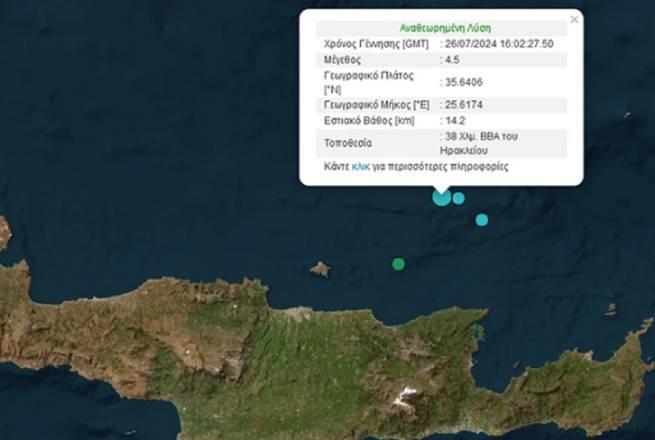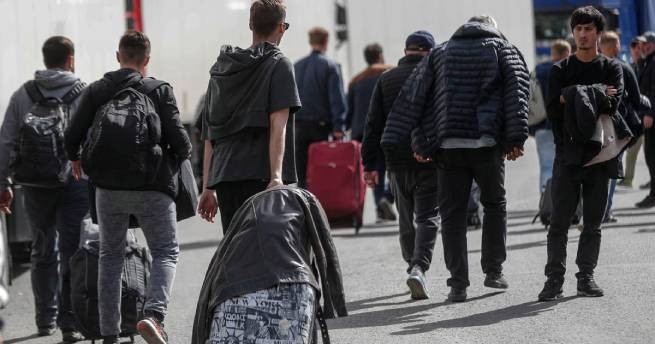Journalists looked into the situation with Russian men who did not want to go to war in Ukraine, but very rarely received asylum in Germany, after two years of hostilities.
Why is it so difficult for them to obtain asylum, and why are their applications often sent to other countries in the European Union? Edition DW notesthat only a small proportion of Russians of military age received approval of their applications.
Back in May 2022, the German government announced its readiness to provide protection to Russian men who do not want to participate in the war against Ukraine. Meanwhile, statistics from the Federal Office for Migration and Refugees state that only a very small proportion of Russian men of military age were able to take advantage of the opportunity to move to Germany. How do the German authorities justify their refusals? Journalists spoke with organizations in Germany that are designed to help men from the Russian Federation who do not want to fight.
Approvals of asylum applications are rare – some statistics
According to Connection, an association specializing in helping those who do not want to participate in armed conflicts, from the beginning of a full-scale war in Ukraine to September 2023, at least 250,000 men liable for military service left the Russian Federation.
According to data provided on February 23 at the request of the publication, BAMF confirms the registration of 1,223 applications for asylum from male Russian citizens aged 18 to 45 years for 2022. 1,150 of them were filed from February to December, that is, after the start of the Russian invasion of Ukraine. Next year 2023, 3,071 asylum applications were filed, and in January 2024, 210 applications.
The number of decisions made on applications was, respectively, 559, 1774 and 244. The fact that in January 2024 the number of decisions on applications for asylum exceeds the number of applications submitted in that month is explained by the fact that the statistics take into account decisions made in January and on applications submitted earlier.
The share of positive decisions on the provision of protection (without specifying whether we are talking about political asylum or a humanitarian visa) was only 7.2% in 2022, in 2023 – 8.0%, in January 2024 – 4.5% , the department reported.
158, 297 and 94 applications were rejected, respectively. At the same time, 196, 1055 and 94 applications were redirected by Germany for consideration to other countries EUin accordance with the Dublin Agreements, BAMF reported, clarifying that the department does not have data on exactly how many asylum applications were sent by Russian deserters or persons evading military service.
Thus, hundreds of Russians who applied for asylum in Germany after the outbreak of the war in Ukraine were never able to get their applications approved.
Requests from Russian draft dodgers arrive daily
Rudi Friedrich of Connection says the organization receives daily requests from Russian draft dodgers asking for support. After the start of “partial mobilization” in Russia in September 2022, there were “extremely many” such requests, and they came not only from Russians in Germany, but also from those who were in Russia or one of the countries where Russians went fleeing from mobilization: Kazakhstan, Georgia and others. With regard to deserters already called up for military service, the German government’s promise of protection is indeed being fulfilled, the expert notes:
“However, the problem is that many decided in a timely manner (that is, before receiving a summons) to avoid conscription and the risk of being caught on the street, at work, or at the exit of the subway.”
But, as practice shows, men who left Russia preventively, even before the summons arrived or were sent to a military unit, the chances of obtaining asylum both in Germany and in other European countries are minimal. Rudi Friedrich cites as an example the situation with one of the Russians. Fleeing mobilization, he left for Georgia, and then reached Germany and applied for asylum.
The human rights activist explains that the BAMF justified the refusal he received in mid-February 2024 by the fact that for him, as a man aged 25-30, there was “a slight probability” that he would be drafted into war. The department argued its position by saying that the young man did not serve in military service, and that only reservists or volunteers are supposedly sent to the war in Russia. The BAMF also indicated that not enough people should be mobilized in percentage terms to be considered highly likely to be affected.
How Germany corrected the problem
Human rights activists with whom DW journalists spoke claim that it is very difficult for Russians who do not want to participate in the war in Ukraine to obtain political refugee status in Germany. On condition of anonymity, a representative of the NxT project, which helps anti-war Russians, said that the criteria for considering such applications have become stricter and NxT “categorically does not recommend” this path to Russians turning to them. The project advises trying to find a job in Germany, getting a freelancer visa, or enrolling in a German language course that will qualify you for a visa.
“Every foreigner arriving in Germany has the right to apply for asylum,” explained BAMF representative Lena Tress. “This also applies to deserters from the Russian Federation who do not want to participate in the war. They can regularly receive international protection. However, the decision to grant asylum is still decided on a case-by-case basis and includes a background check and exclusion criteria (eg involvement in war crimes).
Persons subject to military conscription who refuse to serve may also apply for asylum. They will receive international protection under certain conditions (acts of persecution under section 3a of the Asylum Law (AsylG) combined with a reason for persecution under section 3b of the Asylum Law). However, this group of people is less likely to receive such protection than deserters.”
At the same time, the BAMF recalled another way to move to Germany for “groups of people from Russia exposed to a particular threat,” namely, humanitarian visas issued on the basis of paragraph 22 of the so-called Residence Law (Aufenthaltsgesetz) “for urgent reasons having a humanitarian nature or related to international law” and are intended primarily for journalists, human rights defenders and civil activists. Although the statistics in this area are disappointing…







More Stories
The 33rd Olympic Games opened in Paris (updated)
FT: "consumer boom in Russia"
Massive attack on French rail network on opening day of Olympics